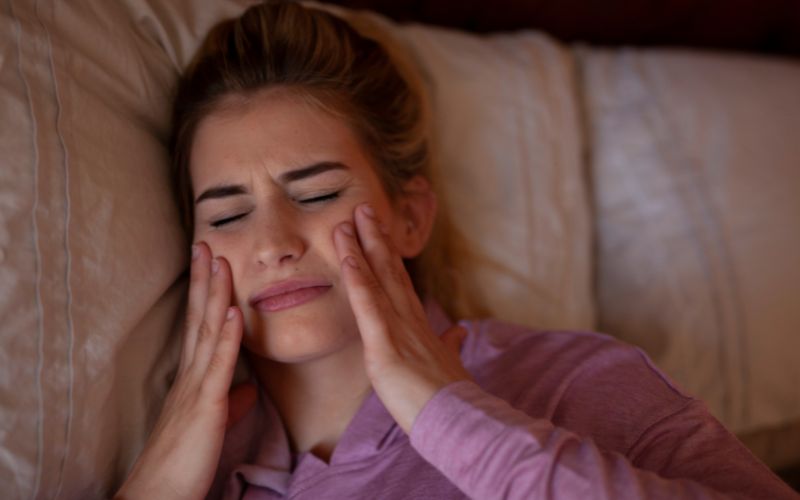Teeth grinding, medically known as bruxism, is an unconscious habit that can lead to jaw pain, headaches, and even tooth damage. While it may seem harmless, it’s crucial to address this issue to prevent long-term oral health problems. Here are 10 effective ways to stop teeth grinding:
-
Stress Management Techniques:
- Deep Breathing Exercises: Simple yet powerful, deep breathing techniques like diaphragmatic breathing can significantly reduce stress levels.
- Mindfulness and Meditation: Practices like mindfulness and meditation help calm the mind and reduce anxiety, major contributors to bruxism.
- Yoga and Tai Chi: These gentle practices promote relaxation and reduce muscle tension, including in the jaw muscles.
-
Lifestyle Adjustments:
- Limit Caffeine and Alcohol: These substances can worsen anxiety and muscle tension, exacerbating teeth grinding.
- Avoid Stimulants: Cut back on energy drinks and other stimulants that can increase nervous system activity.
- Maintain a Regular Sleep Schedule: Irregular sleep patterns can disrupt sleep cycles and increase stress, both of which contribute to bruxism.
-
Oral Appliances:
- Mouthguards: Custom-fitted mouthguards act as a barrier between your teeth, preventing them from grinding against each other.
- Splints: Dental splints, designed by dentists, help to relax the jaw muscles and distribute pressure evenly.
-
Relaxation Techniques:
- Warm Compresses: Applying warm compresses to the jaw muscles can help relax them and relieve tension.
- Massage: Gently massaging the jaw muscles can help reduce muscle tension and improve blood circulation.
-
Address Underlying Issues:
- Consult a Dentist: A dentist can diagnose the cause of your bruxism and recommend the most appropriate treatment options.
- Seek Therapy: If anxiety or stress is the underlying cause, therapy can help you develop coping mechanisms and reduce bruxism episodes.
-
Dietary Considerations:
- Magnesium-Rich Foods: Magnesium plays a crucial role in muscle relaxation. Include foods like spinach, almonds, and avocados in your diet.
- Avoid Hard or Chewy Foods: Refrain from eating hard or chewy foods, such as ice, popcorn kernels, or gum, as these can exacerbate teeth grinding.
-
Biofeedback:
- Biofeedback Therapy: This technique helps you become aware of your body’s physiological responses, such as muscle tension, and learn to control them.
-
Acupuncture:
- Acupuncture: This ancient Chinese practice involves inserting thin needles into specific points on the body to stimulate the nervous system and promote relaxation.
-
Botox Injections:
- Botox Injections: In severe cases, Botox injections can be used to temporarily paralyze the jaw muscles, preventing teeth grinding.
-
Regular Dental Checkups:
- Regular Dental Checkups: Schedule regular checkups with your dentist to monitor your oral health and identify any signs of tooth wear or damage caused by bruxism.
Disclaimer: This information is for general knowledge and informational purposes only and does not constitute medical advice. Consult with a qualified healthcare professional for diagnosis and treatment of any medical conditions.
By incorporating these strategies into your daily routine, you can effectively manage bruxism and protect your oral health. Remember to consult with your dentist or a healthcare professional to determine the best course of action for your specific situation.
